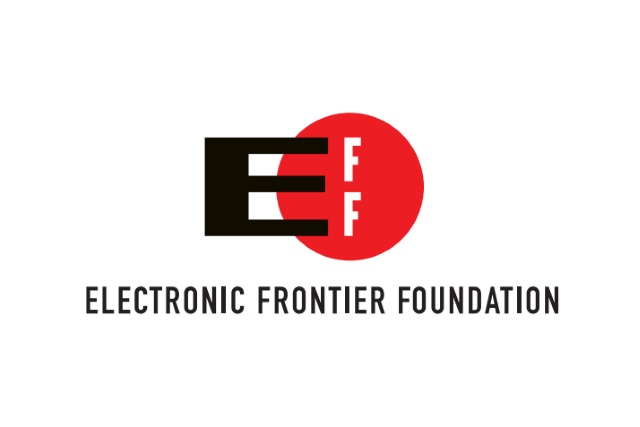
EFF and DuckDuckGo's new partnership is about enhancing secure browsing and protecting user information on the web
Although most web browsers now automatically switch you to the secure HTTPS (Hyper Text Transfer Protocol Secure) version of a website if you try to go to a non-secure HTTP address, the EFF (Electronic Frontier Foundation) offers another option.
Its HTTPS Everywhere add-on has been protecting users for over a decade now, and automatically sends your browser to the secure version of a site if it exists. Thanks to a new partnership with privacy-focused search engine DuckDuckGo, the tool is about to get even better at redirecting users.

Block more Google tracking with the latest Privacy Badger extension
We live in an age where privacy is simultaneously highly valued and under increasing attack -- and nowhere is this truer than online. The EFF (Electronic Frontier Foundation) has been fighting the corner for web users for some time, and with the latest version of its Privacy Badger extension it is helping people fight back against Google.
The latest update to the extension -- which is available for Chrome and Opera on the desktop, and Firefox on both the desktop and Android -- introduces new blocks on "link tracking" in Google web search, Hangouts and the Docs suite

Gmail's new 'Confidential Mode' is flawed and misleading
Google recently rolled out a big update to Gmail, introducing a number of welcome new features.
One the big new additions is 'Confidential Mode' which you can enable from the compose window. This is designed to restrict how the emails you send can be viewed and shared, and you can also set an expiration date for messages. If you have the need to send and receive emails of a sensitive nature, then you might think this is the prefect solution. There’s just one problem -- messages sent using it aren’t confidential.

Privacy group EFF announces STARTTLS Everywhere to secure emails with hop-to-hop -- but not end-to-end -- encryption
When it comes to messaging tools, people have started to show greater interest in whether encryption is used for security, and the same for websites -- but not so much with email. Thanks to the work of the Electronic Frontier Foundation, however, email security is being placed at the top of the agenda.
The privacy group today announces STARTTLS Everywhere, its new initiative to improve the security of the email eco-system. STARTTLS is an addition to SMTP, and while it does not add end-to-end encryption, it does provide hop-to-hop encryption, which is very much a step in the right direction.

Twitter bans Kaspersky Lab from buying ads
Its software is already banned from US government computers, and now Kaspersky Lab's advertisements have been banned from Twitter. The Russian security firm has been hit with an ad ban for "using a business model that inherently conflicts with acceptable Twitter Ads business practices".
Eugene Kaspersky has responded angrily in an open letter in which the company CEO says that even if Twitter reverses its decision, his company will not advertise on the platform, opting instead to donate the money to the Electronic Frontier Foundation (EFF) to fund the fight against online censorship.

EFF: Twitter users have a First Amendment right not to be blocked by President Trump
The Electronic Frontier Foundation has told a court that Donald Trump's blocking of users who criticize him on Twitter is a violation of their First Amendment rights. The digital rights group says that people have a "constitutional right to receive government messages transmitted through social media and participate in the forums created by them."
The EFF argues that Trump's use of Twitter has become a hallmark of his presidency, and by blocking individuals he is denying them access to the policy details and other information he frequently disseminates through tweets.

Kodi: EFF says courts should reject 'abusive' lawsuits against add-on distributors
The war against copyright infringement has always been a difficult one for rights holders. Aside from the scale of the problem, there are multiple platforms that make illegal downloads, streams, and sharing possible. For many years, the main target for anti-piracy bodies was BitTorrent, but in recent months a new number one enemy has surfaced in the form of Kodi, and in particular various companies and addons associated with the media center software.
While in Europe and the UK, sellers of "fully loaded" media center boxes seem to be the primary focus for Kodi-related lawsuits, in Canada and the US, it’s hosting site TVAddons and the ZemTV Kodi addon that are in the firing line. The Electronic Frontier Foundation (EFF) was setup to "defend civil liberties in the digital world" and it has now weighed in on the Kodi situation, pointing out the shaky legal grounds these cases rest on.

EFF resigns from W3C in protest against Encrypted Media Extensions DRM standard
Digital rights group the Electronic Frontier Foundation (EFF) has resigned from the World Wide Web Consortium (W3C) because of a move to standardize the Encrypted Media Extension (EME) API for controlling DRM in web browsers.
The EFF is far from being the only group to be unhappy with the W3C for the decision to standardize EME, but this is the first -- and possibly only -- one to have gone as far as resigning as well as filing objections. The group says that it proposed compromises that were ignored, and the opposition of EFF and other W3C members were simply overruled.

Electronic Frontier Foundation speaks out in favor of free speech after neo-Nazi websites are blocked
Following the violence that took place in Charlottesville last weekend, technology companies have done everything they can to distance themselves from neo-Nazis, white supremacists and other right-wing groups. It led to numerous companies dropping right-wing sites such as The Daily Stormer, which was ultimately pushed to the dark web.
Digital rights group the Electronic Freedom Foundation (EFF) -- well-known for speaking out about privacy and legal issues -- has criticized the ban on neo-Nazi sites and groups saying it poses a threat to free expression online. Google, GoDaddy, Cloudflare, Reddit and Facebook are just a handful of technology companies to have banned The Daily Stormer, but EFF says that "no one -- not the government and not private commercial enterprises -- should decide who gets to speak and who doesn't."

Department of Justice wants to identify 1.3 million visitors to anti-Trump site
The Department of Justice is trying to force a web host to reveal the IP addresses of over 1.3 million visitors to an anti-Trump website. The DoJ is also requesting contact information, email content and photos.
The site -- #DisruptJ20 -- was used to organize protests against Donald Trump on the day of his inauguration. DreamHost says that it is fighting the warrant that has been issued, because the "information could be used to identify any individuals who used this site to exercise and express political speech protected under the Constitution's First Amendment. That should be enough to set alarm bells off in anyone's mind."

Appeal court rules FBI national security letter gagging orders should remain in place
Anyone subject to secret surveillance by the FBI through access to their private data remains unentitled to be told about the related national security letters (NSLs). The 9th US Circuit Court of Appeals in San Francisco ruled that existing gagging orders that prevent companies from advising people about NSLs relating to them do not violate the First Amendment.
A case had been brought to court by the Electronic Frontier Foundation on behalf of Cloudfare and CREDO Mobile that challenged the legitimacy of the gagging orders. EFF won its case back in 2013, but subsequent changes to the law, coupled with the appeal court ruling, means that companies are still unable to inform customers about the existence of national security letters relating to their accounts.

EFF's latest privacy report criticizes Amazon and WhatsApp over policies that 'fall short'
The Electronic Frontier Foundation has published the latest edition of its "Who has your back" privacy report. This is the seventh report from the digital rights group, and this year it criticizes both WhatsApp and Amazon for having policies that "fall short of other similar technology companies."
Four big telecom companies -- AT&T, Comcast, T-Mobile, and Verizon -- performed very poorly, while at the other end of the scale Adobe, Credo, Dropbox, Lyft, Pinterest, Sonic, Uber, Wickr, and WordPress were all praised. In all, the report rates 26 technology companies in five key areas relating to privacy and government data requests: "Follows industry-wide best practices," "Tells users about government data requests," "Promises not to sell out users," "Stands up to NSL gag orders" and "Pro-user public policy: Reform 702."

NSA cites privacy concerns for u-turn over revealing the number of Americans it spies on
Section 702 of the FISA Amendments Act -- the legislation used to permit the NSA to conduct online surveillance -- is due to expire at the end of the year. We have already seen a number of the big names from the world of technology calling for a number of changes during reform.
As part of the reform, officials had promised that they would reveal broad details about the number of American citizens about whom information has been, and is, collected. This is no longer the case. The Director of National Intelligence has performed a u-turn on the promise.

Verizon plans to install spyware on ALL its Android phones [Updated]
Two days ago, the US House voted to destroy the rights of American web users, essentially putting their privacy up for sale.
Now, as reported by the Electronic Frontier Foundation, Verizon has announced plans to install software on Android devices that will track which apps customers download and use. This data will be shared with other Verizon companies, including AOL, and used to push targeted ads on you across the internet. If that doesn’t sound all that bad, the EFF points out the ads could be based on things such as "which bank you use and whether you’ve downloaded a fertility app."

HTTPS now protects half of all web traffic
Websites that implement HTTPS reap a lot of benefits. Not only do they protect their users by preventing third parties from snooping on web traffic, and safeguard against content hijacking and cookie stealing, but they also enjoy a better ranking in Google as the search giant uses HTTPS as a signal in its search algorithms.
Few privacy-minded people would be happy about logging in, or entering credit card details, on a site which doesn’t afford the proper protection that HTTPS brings.
